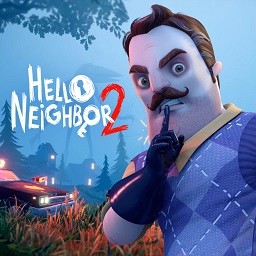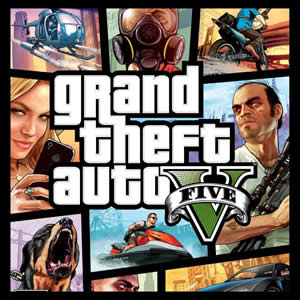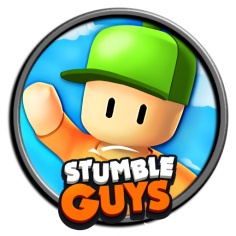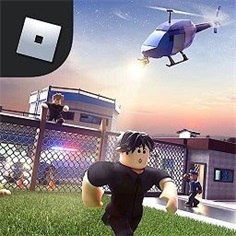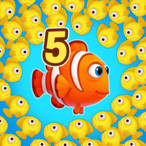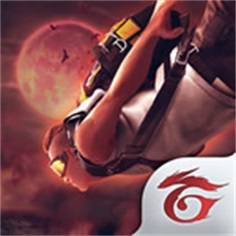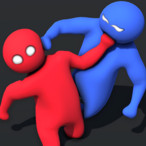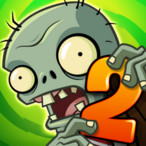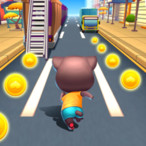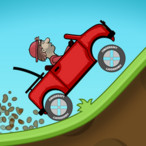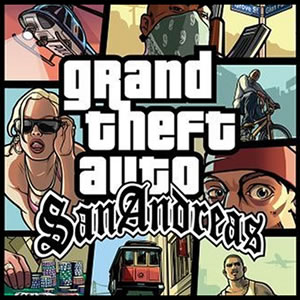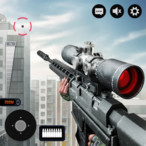Editor's Review:
Kick the Buddy: Second Kick is a crazy yet relaxing game. Its gameplay is so simple that it becomes addictive. You just need to fully unleash your destructive desires and treat Buddy as your personal emotional punching bag, using all kinds of outrageous weapons to brutally assault it. This blue doll is like an uncomplaining air compressor. No matter if you smash it into a meat patty with a baseball bat or roast it into charcoal with a flamethrower, it will only respond to you with exaggerated screams and funny body movements, as if saying, "More! I can still take more! Show me all your tricks" This bottomless interaction simply makes you unable to resist trying even crazier strategies to torture and tease Buddy. But what truly makes you unable to resist is the new weapons. At the beginning, you might only use simple melee weapons, such as a hammer or an electric saw, but as the game progresses, you will discover increasingly outrageous weapons, such as a liquid nitrogen gun that instantly freezes Buddy into an ice sculpture, or a rocket launcher that can blow it into pieces with one shot. Even more exaggerated are those sci-fi weapons, such as a black hole generator that sucks Buddy into a distorted space, or a giant laser cannon that leaves nothing but ashes after a shot. Each time a new weapon is unlocked, it is like opening an unknown box of violence, and you will never know what crazy scene you will see next. And Buddy's reactions add a touch of black humor to the game. Its distorted limbs when it is blown away, its funny actions when it is electrocuted, and even the strange scene of it slowly recovering like putty after being flattened, all make the process of destruction feel inexplicably satisfying.
Interacting with Buddy is not just a simple release of violence, but an exaggerated, almost artistic experience of venting. So if you are stressed out and need to release, or if you just want to find some nonsensical fun, then you must come and interact with Buddy. After all, in the real world, who else can be subjected to your brutal treatment without complaint? In this crazy space shared with Buddy, you can finally be the self that has been suppressed by reality for a long time, the most primitive and aggressive self that has not been domesticated by society. Every whammy of the chainsaw, every blast of explosives, is the most satisfying rebellion against the discipline of civilization. This is not just a game, but a carefully designed mental ritual that allows you to break all the taboos that should and should not be in your daily life. When you control the nuclear bomb launch button in the game, the feeling of being in control of life and death is more real than any power game. You feel that in this world, you are like a god, and you can decide Buddy's life and death at any time according to your own preferences.
In reality, you may be a little clerk who needs to give in everywhere, but here, You are the god who controls Buddy's fate. The thrill of this role change is more direct and intense than any promotion or raise. Watching Buddy spin and scream in a tornado, you suddenly realize that the charm of violence lies not in the harm itself, but in the brief yet real sense of control it gives to the weak. The most ingenious design in the game is the setting that Buddy never dies. No matter how cruel the torture you inflict, Buddy will always be reborn in a new form, just like the negative emotions within us that can never be eradicated. This endless cycle of violence creates a peculiar psychological purification effect. When you blow Buddy up a thousand times, some kind of epiphany will come. You will realize that actually anger and violence are part of your human nature. Pretending to be a good person does not make these negative energies of human nature disappear. On the contrary, acknowledging their existence makes them no longer destructive. From Freud's perspective of psycho-dynamics, the world shared with Buddy actually constructs a perfect transitional space. Here, those instinctive impulses that are considered dangerous in reality can be safely expressed and released. Just like children deal with anxiety through doll games, adults also need such an outlet. When we watch Buddy being tortured by all kinds of imaginative weapons, we are actually conducting a risk-free psychological drill, converting the aggression in reality into harmless entertainment.
The most ironic thing is that this seemingly extremely violent game may ultimately promote mental health more effectively than those motivational books full of positive energy. Because true emotional management is not pretending that negative emotions do not exist, but finding a safe channel for venting. Just like the clear sky after a rainstorm, when you have fully released the darkest fantasies in the game, returning to the real world, you can instead show a more genuine warmth and tolerance. After all, a person who can freely inflict violence in the virtual world often least needs to actually use violence in reality. Of course, this is a fascinating and deeply unsettling phenomenon. To explore it with the required depth, you must move beyond the simple description of gameplay and into the very nature of feeling itself. We are, in our modern condition, connoisseurs of numbness. We drift through our days in a kind of managed haze. You may be constantly haunted by all kinds of uncontrolled emotions and feelings, a brief spike of outrage, a flicker of secondhand joy, a ghost of empathy, but these are pale imitations, fading as quickly as they appear. It seems that you feel everything and nothing, all at once. So you may become numb. And yet, in the strange, sterile laboratory of this game, something breaks through that foggy veil blocking your true feelings. While interacting with Buddy, you will totally forget about everything else. You will be truly living in the fun of the current moment.
In this world, however, the pathway to that authenticity is not found in creation, cooperation, or discovery. It is found in a far more primal, and frankly, a more disturbing act. It is found in the act of torment. While you are having fun with Buddy, prodding, poking, stretching, testing the absolute limits of its digital existence, you are not merely a passive observer. You are an agent of pure cause and effect. Your every action produces an immediate, unambiguous reaction from this creature. There is no filter, no social contract to uphold, no algorithm to appease. There is only your input and its output. This is the most charming part of this game. In a life where your efforts can feel meaningless, where your actions dissolve into the vast, indifferent machinery of society, this game provides a stark and powerful antidote. And while you are laughing in real life, you may always fake because other people are laughing. But while you are having fun with Buddy, you can literally hear your own laughing voice. It is not a quiet, internal chuckle. It is a raw, guttural, and perhaps even shocking sound that fills the silence of your room. It is the sound of you feeling true fun. In that free moment, you have startled an authentic emotion out of its hiding place. The laughter is not for anyone else; it is not performed. It is a pure, physical reaction. It is the sound of a pressure valve being released. For a brief, startling second, you feel that everything is so real. Because in that moment, the fun is so real.
Perhaps the most profound promise this world offers is not just the jolt of authentic feeling, but something even rarer: a sense of absolute emotional safety. Our real lives are a minefield of judgment. Every action, every word, every choice is silently weighed and measured by those around us, and more harshly, by ourselves. We perform, we filter, we retract. And we may even purposefully build walls. But Buddy never judges. Buddy never flinches, never recoils, never files away a memory of your cruelty to be used against you later. It is a constant, a digital anchor in the swirling chaos of human relationships. And so, you find yourself returning, not just for the feedback loop of laughter, but for the quiet hum of constancy. Whenever you enter this world, you are accepted unconditionally. And Buddy will never refuse you. This world with Buddy will become your exclusive paradise. It is a space where you can unburden your soul in the most primal ways. In this world, you can release your anger by torturing Buddy in ways that are frantic and shockingly creative. You can externalize the chaos within, giving it a physical form. And in the aftermath, in the quiet moments when the rage subsides, you can have fun by teasing Buddy in sweet, gentle ways. You will never get bored. Not because the game offers endless content, but because you, yourself, are the endless content. The initial curiosity about what Buddy is subtly morphs into a far more pressing investigation: who am I when no one is watching? You just want to find all the sides of Buddy, which is really just a way of saying you want to find all the sides of you. And this is where the truly unsettling thought begins to creep in. Strangely, after all the pushing and prodding, after the anger and the affection, you find your mind wandering to a final, forbidden frontier. You start to wonder what you could do to make Buddy die forever. This is not necessarily born of malice. It is a far more fundamental human impulse: the desire to find the edge of the map, to understand the ultimate limit of a system. Buddy will always be your perfect immortal companion. But the interesting thing is that Buddy only falls and gets bruised, but Buddy will never die. Whenever you need Buddy, Buddy is always happy to have fun with you!







